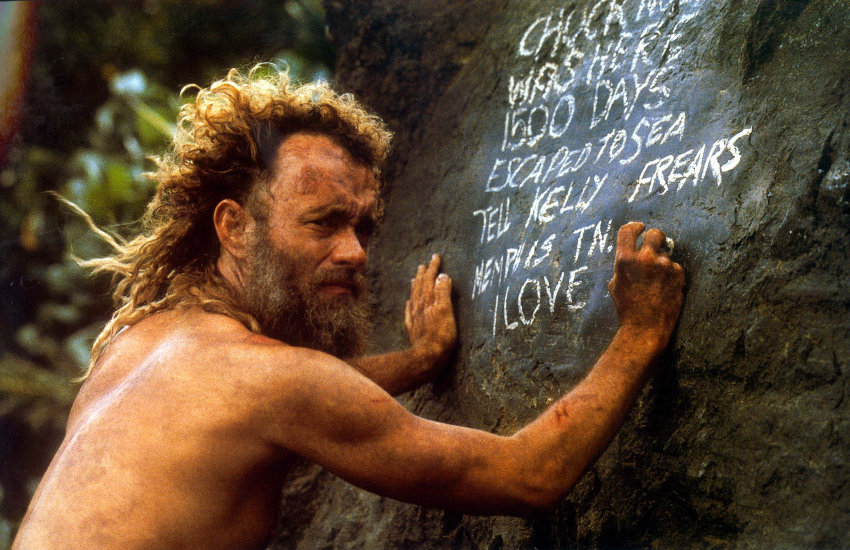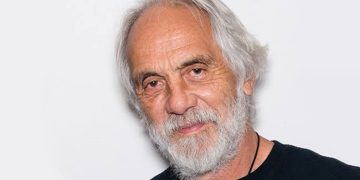“Cast Away” is widely considered one of the best survival films ever made, offering viewers an unforgettable journey of endurance and hope. The story follows Chuck Noland, played by Tom Hanks, a fast-paced FedEx businessman whose life takes a dramatic turn after a plane crash. As he fights for survival on a desolate island, the film explores themes of isolation, survival, and the human spirit. But what truly delights the audience is the unopened package that Chuck finds on the island, which becomes a central symbol in his quest for meaning.
Cast Away Ending ExplainedChuck’s Life Before the Crash
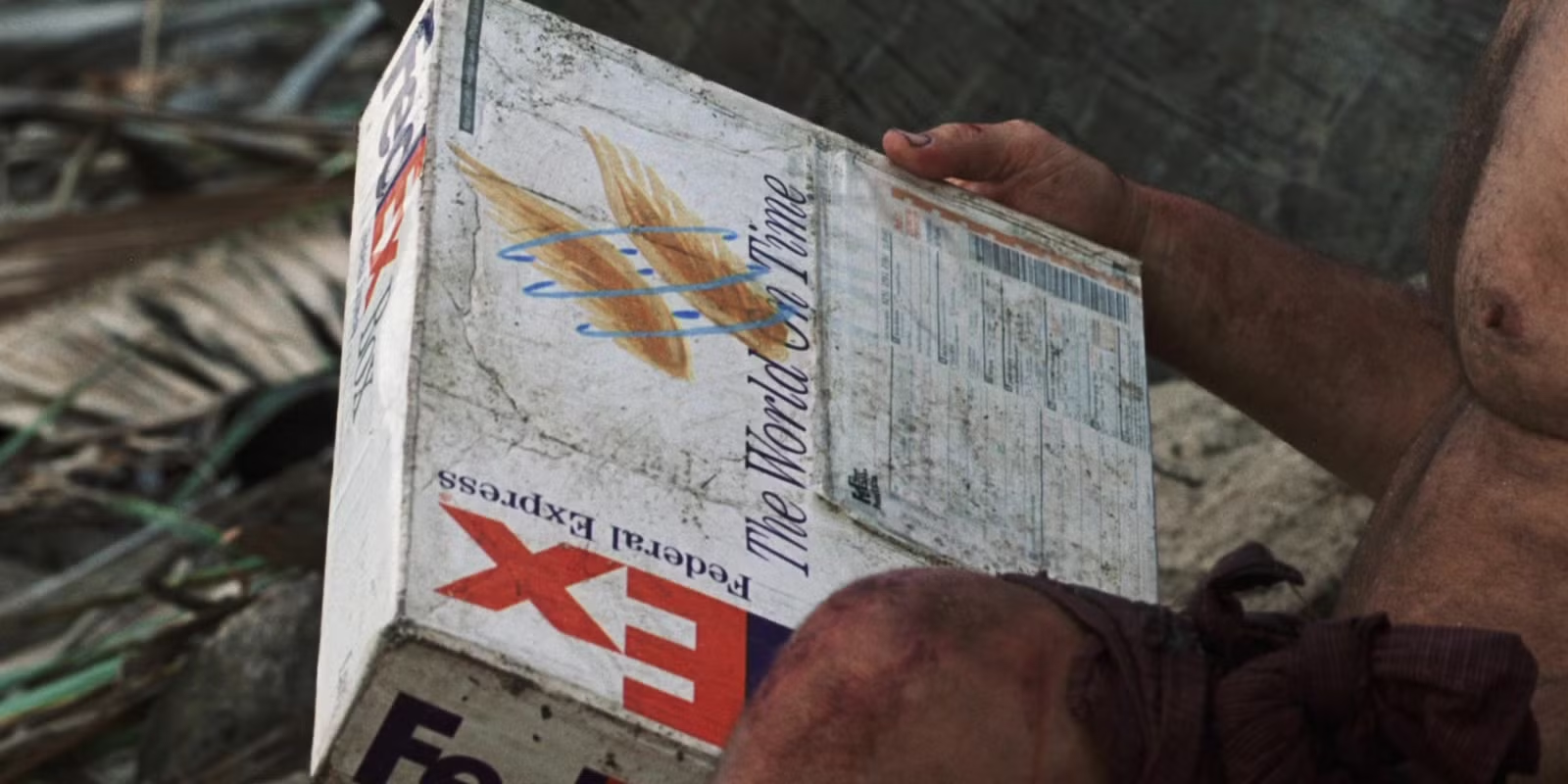
Chuck’s life before the crash is a whirlwind of work, stress, and love. He is engaged to Kelly Frears, portrayed by Helen Hunt, and just before his departure on a FedEx flight, he gives her an engagement ring, promising to return soon. However, fate has other plans, and Chuck is the only survivor when the plane crashes, leaving him stranded on a deserted island. As he tries to stay alive, various FedEx packages wash up on the shore, and Chuck opens each one in search of something useful.
The Significance of the Unopened Package
Yet, one package remains untouched. It is marked with orange angel wings and blue loops, standing out from the rest. Chuck holds onto this package as a symbol of his will to survive. Much like his locket, which contains a picture of Kelly, and the volleyball he names Wilson, this unopened package becomes a source of hope, a reason to keep going when everything else seems bleak.
The Package as a Lifeline
The unopened package is more than just an item—it’s a lifeline for Chuck. As he battles the overwhelming desire to give up, the thought of returning the package gives him something to look forward to. In a pivotal moment, Chuck contemplates suicide, considering ending his life rather than continuing to suffer. But he decides against it, choosing instead to endure the hardships of island life. Soon, an unexpected piece of a porta-potty door washes up on the shore, and Chuck uses it as a makeshift sail, giving him a new purpose.
The turning point comes when Chuck loses Wilson, the volleyball that became his companion throughout the ordeal. Losing Wilson symbolizes the final severing of his ties to his old life. Just when it seems like all hope is lost, a container ship passes by, and Chuck desperately signals for help. Eventually, Chuck is rescued and returns to the modern world. However, the reunion is bittersweet, as Kelly has moved on, married, and had a child. This leaves Chuck heartbroken, feeling as if he’s lost her all over again.
Chuck’s Emotional Journey After Rescue
Despite his sorrow, Chuck expresses gratitude that Kelly wasn’t with him on the island, as he knows the trauma would have been unbearable for her. In the final scenes, Chuck still holds the unopened package. He returns it to its sender with a heartfelt note that reads, “This package saved my life, thank you.” This moment encapsulates the emotional journey Chuck has undergone, transforming from a man who fought against his circumstances to someone who has accepted them.
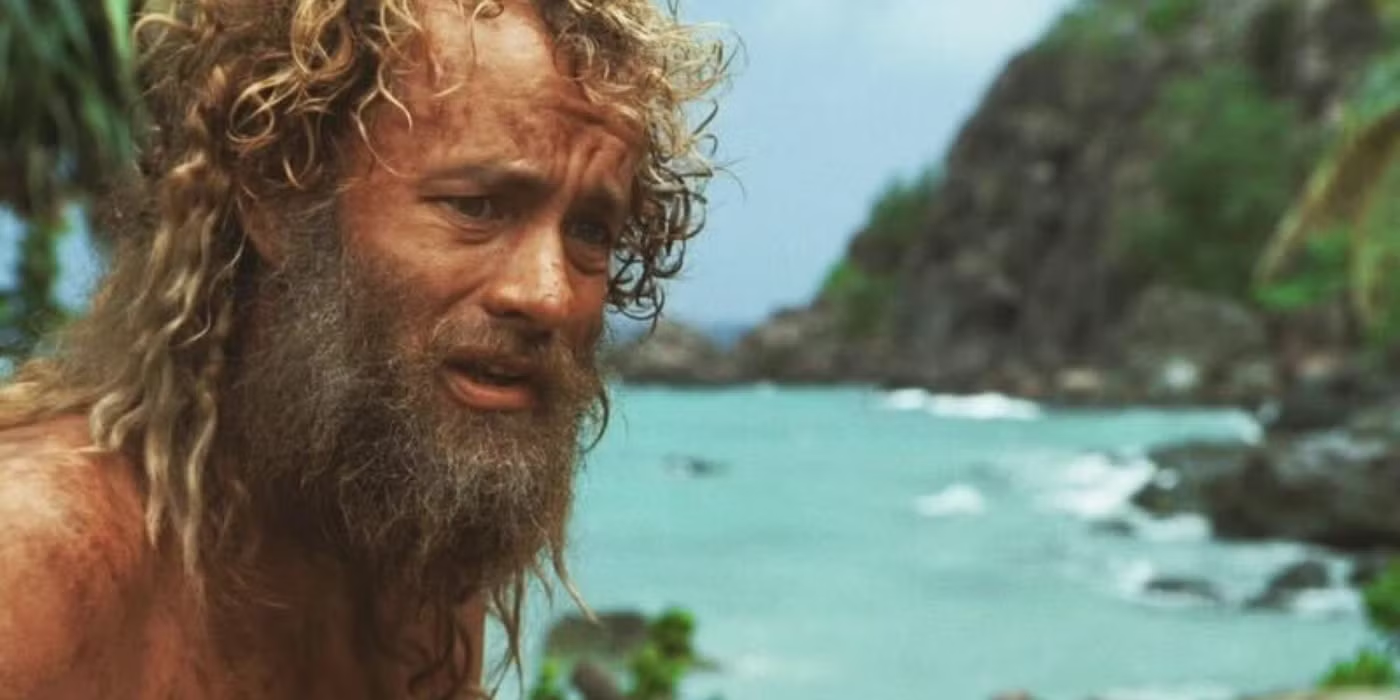
The B Story and the Unopened Package’s True Purpose
While the primary storyline follows Chuck’s physical and emotional survival, there is a secondary story, known as the B story, which intertwines with the main narrative. This B story centers on a woman named Bettina, who is in Russia, dealing with her unfaithful husband. Bettina sends a package to her husband, but this package inadvertently ends up on Chuck’s FedEx flight. Perhaps the package was meant to be returned to the sender, which ties the two stories together. By the end of the film, this unopened package serves as a Red Herring, drawing attention away from its real significance.
The opening sequence of “Cast Away” is symbolic, setting the tone for the film. It shows a literal crossroads, where a road splits into four possible directions. This moment reflects the choices Chuck faces, as each path represents a different future. The title sequence is deliberate, emphasizing that “Cast Away” is two separate words, not one. This distinction suggests that the story is not just about a castaway but also about casting away something from one’s life.
Chuck’s Transformation: Casting Away Control
For Bettina, she is literally casting away her husband, as evidenced by the new sign on her farm that reads “Bettina” instead of “Dick & Bettina.” Chuck, too, must cast away his need for control. He learns that life cannot always be controlled and that he must accept what comes his way. The unopened package, in this context, symbolizes Chuck’s shift from trying to dominate his fate to learning to go with the flow.
The real mystery of the package is what’s inside. For many viewers, the curiosity about its contents lingers throughout the film. Some fans theorize that the package might contain a satellite phone or some other life-saving tool that could have sped up Chuck’s rescue. However, the film’s message is that the contents of the package are not important. Chuck’s growth and survival depend on the lessons he learns from his isolation, not on material items that could offer a shortcut out of his predicament.
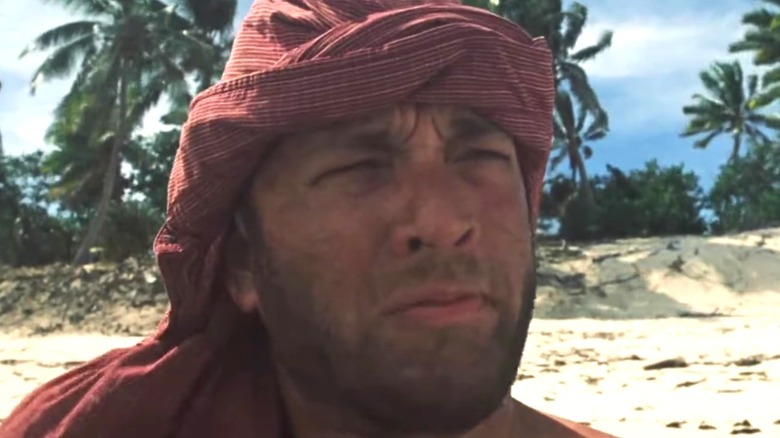
What’s Inside the Package: The Script’s Revelation
In the script, Chuck does indeed open the package, revealing the truth about what’s inside. Contrary to fan theories, the package does not contain a satellite phone, GPS device, or any other survival tool. Instead, it contains two jars of homemade green salsa and a letter from Bettina. The letter reads: “You said our life was a prison. Dull. Boring. Empty. I can’t begin to tell you how much that hurt. I don’t want to lose you. I’m enclosing some salsa, the verde you like. Use it on your sticky rice and think of home. Then come home—to me. We’ll find the spice in our lives again. Together. I love you. Always. Bettina.”
The Final Shot: A New Beginning for Chuck
The final shot of the movie mirrors the opening sequence, bringing the story full circle. Chuck stands at another crossroads, symbolizing the freedom to choose his next steps. He looks down the road leading to Bettina’s farm, and as the screen fades to black, the film suggests that Chuck will no longer fight against life’s tide. Instead, he will embrace whatever comes his way, ready to move forward with the lessons he has learned.

